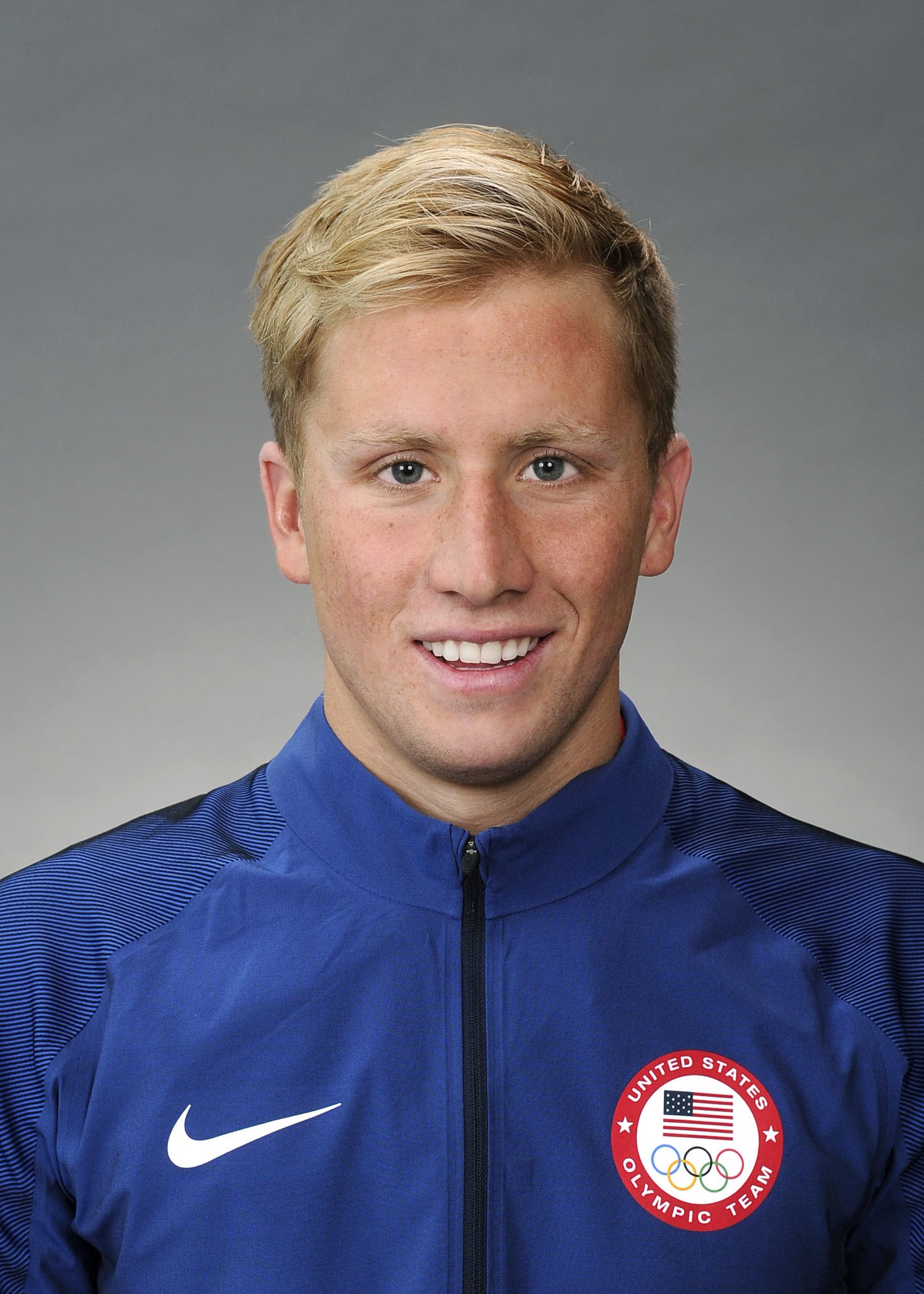 Now a two-time Olympic swimmer, Jordan Wilimovsky grew up in California and joined his first swim team at the age of nine. He went on to receive a swimming scholarship to Northwestern University, where he majored in political science and international studies. After winning a gold medal in the 10k at World Championships in 2015, he qualified for the 2016 Olympic Games in Rio. He finished second in the 1500 at Olympic Trials the following summer, which qualified him for another event in Rio and made him the first American to compete in the pool and open water at the same Olympic Games. He later qualified for and competed in the 2021 Tokyo Olympic Games.
Now a two-time Olympic swimmer, Jordan Wilimovsky grew up in California and joined his first swim team at the age of nine. He went on to receive a swimming scholarship to Northwestern University, where he majored in political science and international studies. After winning a gold medal in the 10k at World Championships in 2015, he qualified for the 2016 Olympic Games in Rio. He finished second in the 1500 at Olympic Trials the following summer, which qualified him for another event in Rio and made him the first American to compete in the pool and open water at the same Olympic Games. He later qualified for and competed in the 2021 Tokyo Olympic Games.
Below, learn how Wilimovsky fuels through a food-first approach to compete well as an athlete subject to anti-doping rules.
MEAL: Pesto pasta, salmon, broccoli, and roasted tomatoes
When I’m training, every meal is basically a combination of a protein, carb, and veggie. On bigger training days, I’ll have more carbs on my plate, and on a light day or recovery day, I’ll have more protein and veggies. I don’t really follow a nutrition plan, but this is my general strategy. Over the pandemic, I started to grow some of my own food too. So, the tomatoes, broccoli, and basil for the pesto was grown in my garden, which I was pretty stoked on.
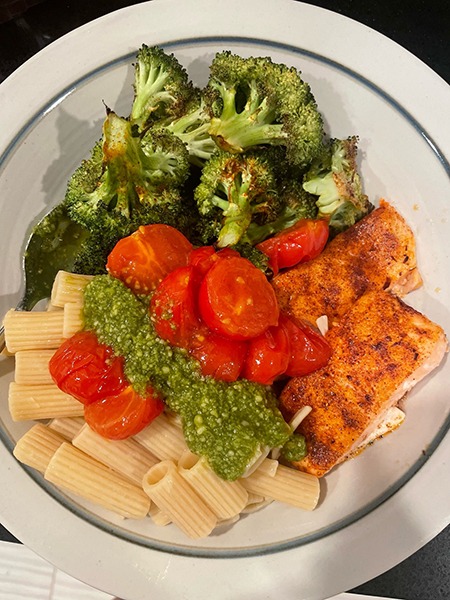
MEAL: Steak, broccoli, and rice
This is another meal that features a protein, veggie, and carb, and it’s one that I have a lot. I usually cook the same 4-5 recipes every week. Steak is one of my favorite things to cook, and I usually grill mine. I’m pretty lucky here in California to have nice weather year-round, so after practice I can grill dinner outside. Our hardest practice of the week is Saturday morning and it’s fun to grill that night knowing I have the rest of the weekend off. Steak or red meat is probably not something I’d eat the day before a hard practice or competition, but it’s nice to have after a big week of training.
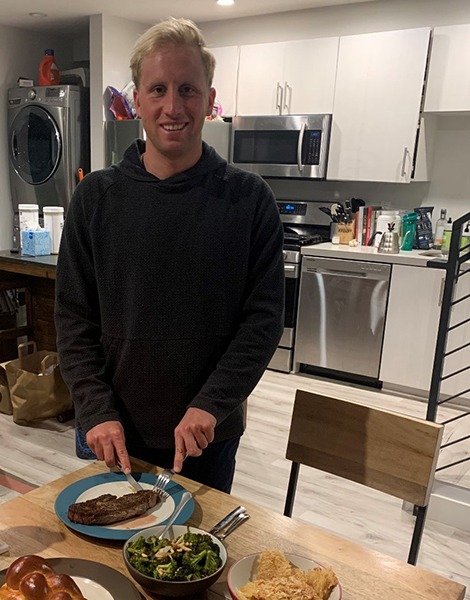
MEAL: Homemade pizza
Homemade pizza is another Saturday training tradition. Like with the red meat, it’s probably not the best pre-workout snack, but it’s a favorite cheat meal reserved for after a big week. Looking forward to some pizza definitely helps me get through a 9k workout on Saturday.
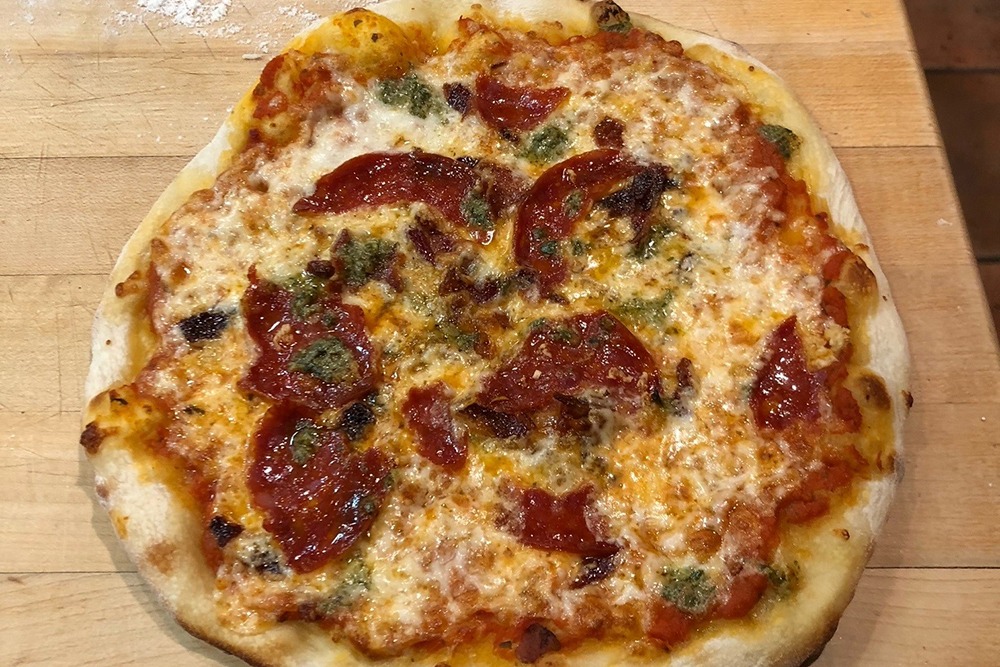
MEAL: Eggs, toast, potatoes, and bacon
I pretty much eat the same breakfast every day. Pre-workout, it’s always a bowl of oatmeal (not pictured here cause it’s a bit boring), and post-workout, it’s always eggs and something on the side. Sometimes avocado, sometimes toast and potatoes. I always feel like the protein-carb combo helps me recover for afternoon practice. It’s also pretty filling so I don’t have to have a big lunch before I go to the gym and my second practice.
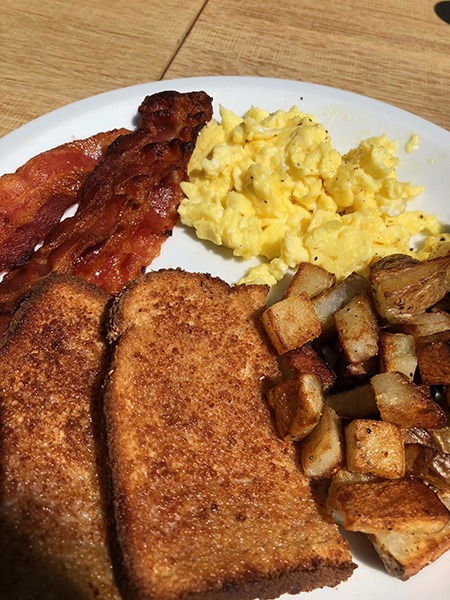
What is food-first nutrition?
Every athlete wants to reach their peak performance, which often means pushing harder and longer in training and in competition. In the quest to reach their maximum potential, many athletes know that good nutrition is critical, but they may also look to the latest supplements and trendy diet regimens to give them that extra boost.
Some athletes, on the other hand, have found that a food-first approach is all they need to achieve peak performance. While some athletes may need to supplement their dietary intake because of a medical condition, many athletes can properly fuel their bodies and meet all their bodies’ needs with the right food.
In the Food-First Nutrition series, Olympians, Paralympians, and elite athletes share how they maintain the strength and energy they need to compete at the highest levels of sport through a food first approach. For more information on the best foods for athletes, check out the TrueSport Nutrition Guide.
Read more Spirit of Sport blog posts



